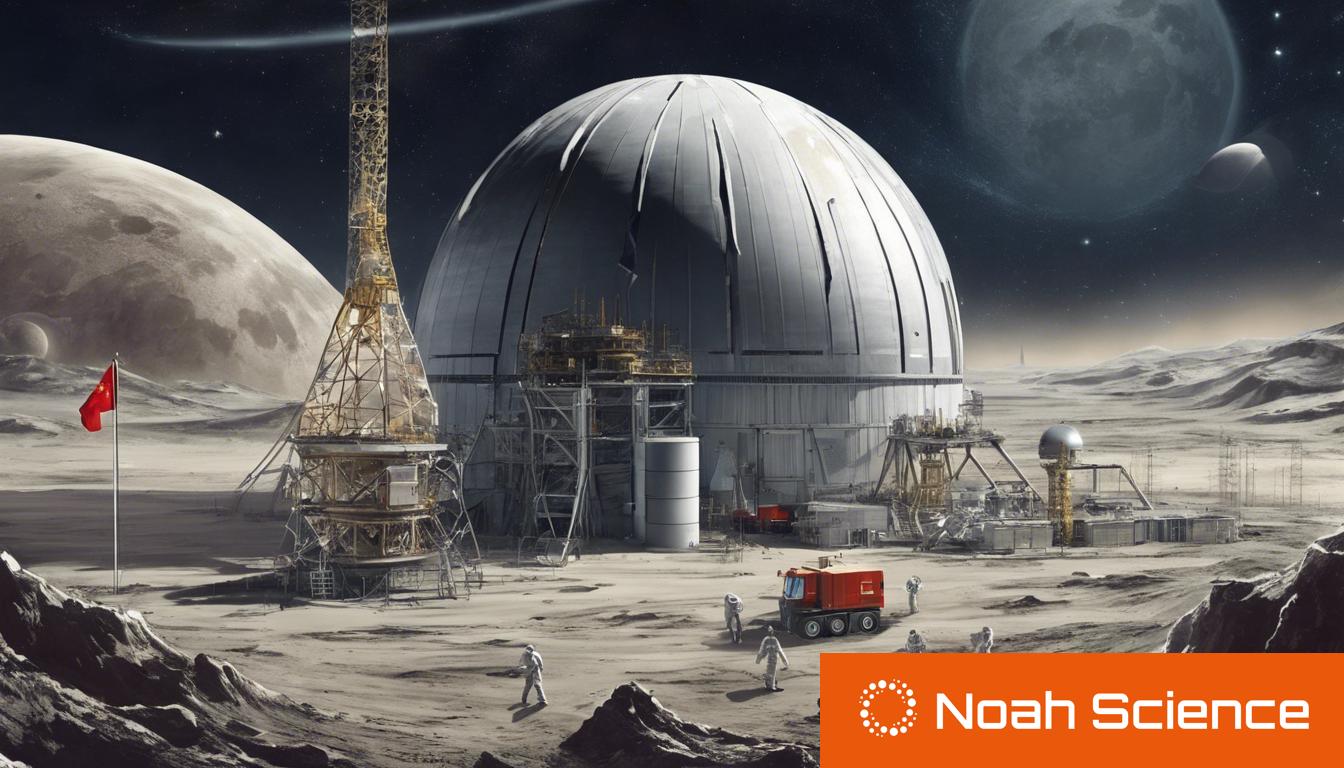Russia and China announce a groundbreaking plan to establish a nuclear power plant on the Moon by 2035, highlighting a potential new phase in the space race with Western countries. This ambitious project is part of broader discussions on space security and AI weapons, amid growing geopolitical rivalry and strategic positioning in outer space.
Russia and China have announced plans to construct a nuclear power plant on the Moon between 2033 and 2035, signaling a potential new space race with Western nations. This development was disclosed by the head of the Russian space agency, Roscosmos, and follows discussions on “outer space security” and “AI weapons” between the two countries. The Russian Foreign Ministry stressed the importance of collaboration on weapon systems and AI technology, with both nations confirming their commitment to joint efforts on international platforms such as the UN-backed policy on weapons development.
The United States, observing China’s rapid progress in space technology, has raised concerns through Gen. Stephen Whiting of the US Space Command. Gen. Whiting warned that China could reach “world-class status” in space technology by 2030, challenging American and Allied space capabilities. He underlined China’s focus on military space and counter space capabilities, aiming to restrict actions in space by adversaries. Both Russia and China are advancing in counter space weaponry, with Russia emphasizing technologies like directed energy weapons and satellite communications jammers.
This partnership between Russia and China on lunar infrastructure and their focus on space security and military capabilities indicate a shift towards increased competition and strategic positioning in outer space, potentially initiating a new era of geopolitical rivalry in space.
In a related development, Rafael Mariano Grossi, Director-General of the International Atomic Energy Agency (IAEA), plans to visit Moscow for discussions on nuclear safety in Ukraine, focusing on the Zaporizhzhia Nuclear Power Plant, Europe’s largest. Grossi’s visit comes against the backdrop of the ongoing conflict in Ukraine and follows his recent inspection of the plant. The talks in Moscow will cover technical matters related to the plant’s operational status and safety evaluations. The IAEA has highlighted the risks faced by the Zaporizhzhia facility, including power shortages and staffing challenges, emphasizing the importance of international dialogue and cooperation to prevent a nuclear disaster amid the escalating tensions in the region.













